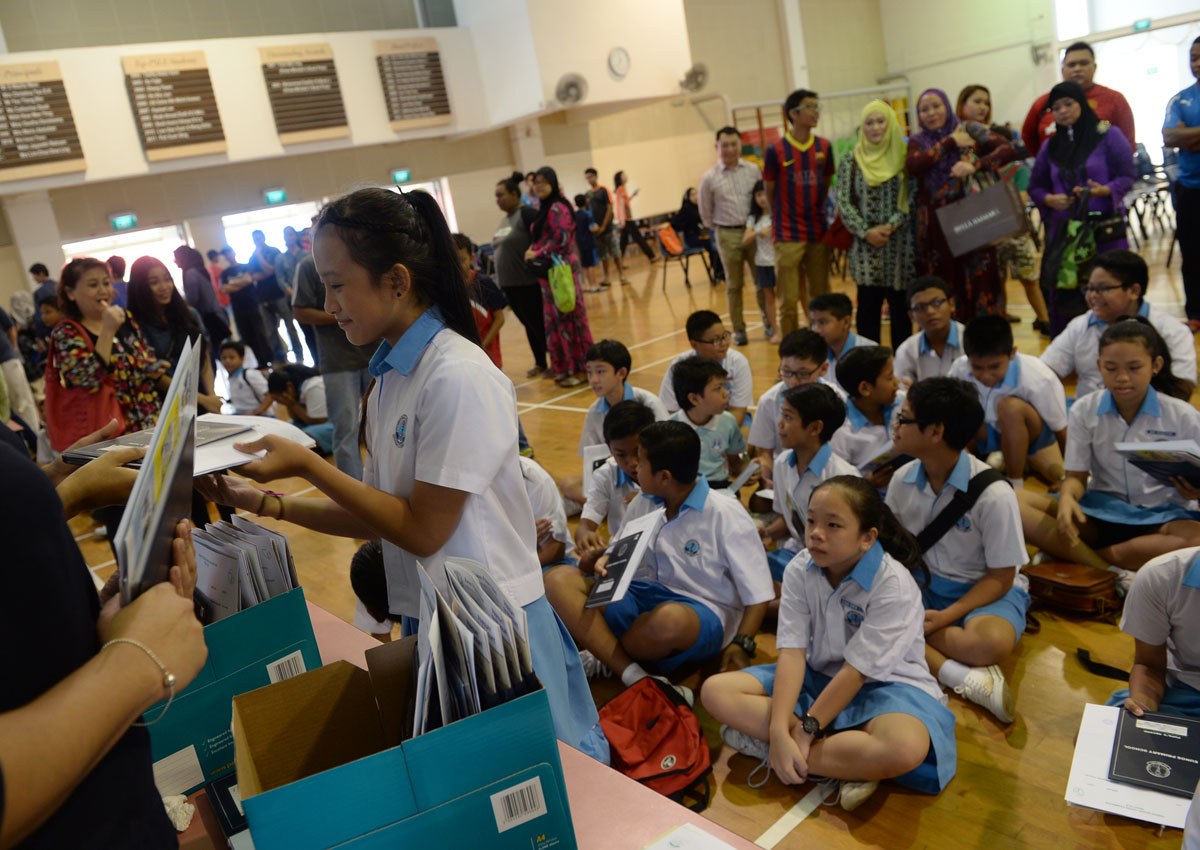Two significant policies in education – the way pupils are graded in the Primary School Leaving Examination and how students are admitted into secondary schools, post-secondary institutions and universities – are set to change, as the Ministry of Education (MOE) attempts to shift the focus from grades to building aptitude and skills.
Yesterday, Acting Education Minister (Schools) Ng Chee Meng announced during the debate on his ministry’s budget that the new PSLE scoring system will come into effect in 2021. Those who entered Primary 1 this year will be the first cohort to be graded under the new system, where they will be given letter grades and placed in “wider bands” – the way O- and A-level examinations are marked.
With the change in the scoring system, admissions into secondary schools will also be reviewed.
Mr Ng agreed with Ms Denise Phua (Jalan Besar GRC) who said that the current PSLE scoring system grades pupils too finely.
Said Mr Ng: “What is measurable may not be what is most important in the long run. Chasing after that last point in an exam could come at a cost to other aspects of our children’s overall development.”
Schools would develop their distinctive strengths and niche programmes, he said, so that when the broader PSLE scoring bands take effect, students will be able to pick options that match their interests.
The changes will also apply further up the education chain. Acting Minister for Education (Higher Education and Skills) Ong Ye Kung, who announced the expansion of the discretionary admission scheme for polytechnics and universities, said the changes align with the objectives of the SkillsFuture movement to harness collective interests and aspirations.
He said the SkillsFuture movement starts with schools laying the foundation for students. The Institute of Technical Education, polytechnics and universities then help young Singaporeans discover their interests and hone their skills.
He said, currently, up to 7.5 per cent of the students who enter the polytechnics every year are admitted based on their interest and aptitude in a particular field. From next year, up to 12.5 per cent of polytechnic students will be admitted through the scheme. If the intake is 20,000, then this translates to 2,500 students. For universities, the proportion of students admitted through discretionary admissions will be raised from the current 10 per cent to 15 per cent. If the yearly intake is 15,000, this will benefit another 750 students.
He said MOE’s studies have shown that for students with similar O-level aggregate scores, those who are admitted to polytechnics through the discretionary scheme do better in their studies.
He said: “This confirms what may have been intuitive to us all along – when you are able to choose and enter a course you are interested in or feel passionate about, you… will likely do better.”
MOE, alone, cannot bring about this change, said Mr Ng. “Parents and the community have to make the shift too.”

This article was first published on April 9, 2016.
Get a copy of The Straits Times or go to straitstimes.com for more stories.






